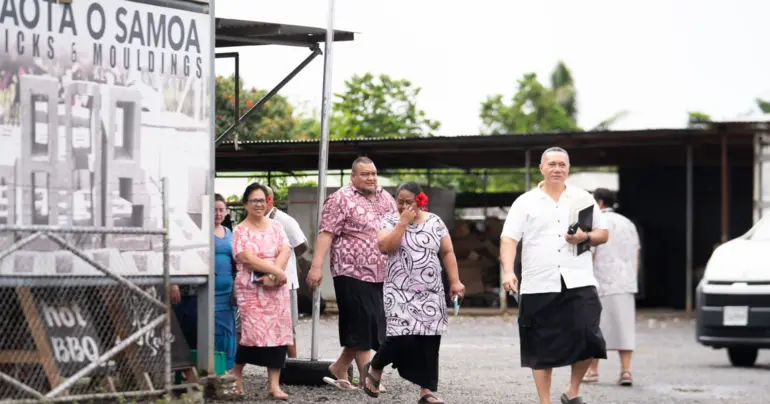Election promises and political fortunes
With the Fa’atuatua i le Atua Samoa ua Tasi (FAST) Government two months away from marking two years in office, it isn’t surprising that its voters have also up the ante and revisited the party’s election promises.
It was unfortunate that the 2021 Constitutional Crisis – which immediately followed the general election of that year – reduced the current Administration’s term in office by a couple of months with the political impasse throwing the spanner in the works of the new Government’s plans at that time to get on with governing.
But nation-building in Samoa revolves around the country’s five-yearly political cycle and that fact has not been lost on the voters, who while sympathetic to the ruling party’s less time in office (when compared with their predecessors) want results in this current term of the House rather than the next.
The appeal by Samoa’s voters for the current Government to deliver on its election promises is a basic form of accountability of leaders by their constituency. It is a practice that should be encouraged for the full term of a Parliament (and by extension the government of the day). Every time a voter demands that his or her Member of Parliament revisit and fulfil his or her 2021 election promise – which then triggers a response from the leader and results in a positive outcome for the community – Samoa’s democracy grows and is strengthened while giving hope and confidence to the people.
This is why the developments last week at the annual conference of Samoa’s largest church, the Congregational Christian Church Samoa or EFKS, should be monitored closely. An article (Church wants election promise fulfilled) in last Friday’s edition of the Samoa Observer reported that the church’s education committee will write to the Government to seek an update on its promise to pay the salaries of teachers at all church or mission-owned schools.
The church’s Education Committee have written to the Chairman and Executive of the EFKS Committee asking if they can follow up on the issue with the Government and to query whether the proposed teacher salary funding plan would go ahead.
This is not the first time the church’s leadership has put the current Administration on notice. In late 2021 the EFKS Executive Committee reminded the new party and its leadership at that time of their promise to repeal the former government’s taxation policy, which also required church ministers to pay taxes. In November of that year, the Government shelved the income tax policy targeting “ministers of religion” and began consultations with the country’s 38 church denominations including the EFKS.
The church’s former secretary general, Reverend Vavatau Taufao, in an interview with Samoa Observer at that time said he believes the income tax policy targeting church ministers swayed “thousands” of CCCS members to vote for the FAST party and the church wants the law repealed completely.
"I am hoping that they don't review that thing [taxation law] because in their manifesto it's repealing, not review or [in other words], abolish," Rev. Vavatau said in an interview at that time.
"Because personally and I really believe this, that this is the very issue that actually drew the majority to FAST because, in their manifesto, it says that when they come in, they will just abolish [the law] just remove it.”
However, the citizens and eligible voters of Samoa, irrespective of their political affiliations, have a right to hold their Members of Parliament accountable and ask questions about their election promises. They do not need to wait for their local church pastors to ask questions from the pulpit. The people should know that it is within their democratic rights to question why policies that were promised during the 2021 general election’s campaign period by the elected parliamentarians are yet to be implemented or delivered for the benefit of the people and the community.
Even this newspaper continues to ask questions about the election promises that were made by the current Administration in the lead-up to the 2021 general election. For example, the FAST party promised to repeal the Land and Titles Court (LTC) Acts, if it got elected to public office. The legislation, which was passed in December 2020, amongst other changes removed Supreme Court oversight over the LTC and made it autonomous with its own powers. In January this year, this newspaper reported that the Government will only amend the contentious laws and not repeal them. The decision by the Government was a betrayal of the voters’ trust and raises questions about the integrity of the party and its members.
With over three years left before the country goes to the polls again for the next general election, it is within your rights to pull out the ruling party’s manifesto and do up a checklist of its policy achievements over the last two years. Ultimately, your assessment of the Government’s performance should put you in a box seat to decide if they should be re-elected for a second term.











